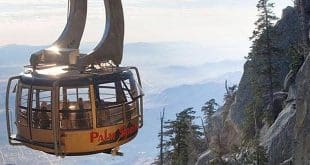 As CEO of HARC (Health Assessment & Research for Communities, a nonprofit based in Palm Desert), Dr. LeComte-Hinely oversees and conducts a wide range of research and evaluation services, including program evaluation, needs assessments, and representative community health assessments. Prior to becoming CEO of HARC, Dr. LeComte-Hinely held the role of Director of Research and Evaluation for two years.
As CEO of HARC (Health Assessment & Research for Communities, a nonprofit based in Palm Desert), Dr. LeComte-Hinely oversees and conducts a wide range of research and evaluation services, including program evaluation, needs assessments, and representative community health assessments. Prior to becoming CEO of HARC, Dr. LeComte-Hinely held the role of Director of Research and Evaluation for two years.
Dr. LeComte-Hinely obtained her doctorate from Portland State University in the field of Applied Psychology. Her expertise is in the area of Occupational Health Psychology, which aims to keep workers healthy, happy, and productive. Dr. LeComte-Hinely previously conducted research and evaluation in a wide range of fields, including health, well-being, work-life balance, supportive supervision in the workplace, green business, professional network development, gender discrimination, leadership, and informal science education.
Kate Buckley: Jenna, where are you from originally, and what brought you to the Palm Springs area?
JLH: Originally, I’m from a small town in rural Oregon. I first came to the Inland Empire for college at the University of Redlands. I returned to Portland for my Master’s and PhD after that. When I was about to finish my PhD, I was looking for a very specific job—doing doctorate-level research and evaluation that would improve health and wellness in the community. When I saw the job opening at HARC for the Director of Research and Evaluation, I jumped on it. The CEO called me less than 12 hours later, and before I knew it, I had a new job, a new house, and a new hometown.

KB: Tell me about HARC (Health Assessment & Research for Communities, a nonprofit based in Palm Desert)—what’s your mission and whom do you serve?
JLH: HARC is dedicated to transforming community health and well-being through research and evaluation. What that means, practically speaking, is that HARC provides the research and evaluation that organizations need to really do their best work when it comes to improving health and wellness in our communities. We have two major parts of what we do: the Coachella Valley Community Health Survey, sometimes known as the Community Health Monitor and customized research and evaluation services.
The Community Health Monitor is a huge survey that we do of the Coachella Valley community every three years. We gather information about all aspects of health and give that information back to the community at no charge. Nonprofits, local government, educational institutions, healthcare organizations, and local businesses use this data to prioritize needs in our community, and design programs and services to meet those needs, especially for underserved groups. We’re especially proud that in the past five years, our data has been used by dozens of local nonprofits to obtain over $12.8 million in funding for things like free HIV tests, counseling for kids, meals for homebound seniors, and much more. Through this, we truly serve EVERYONE in our Coachella Valley. We’re actually just starting data collection for our fourth survey this month.
The second half of what we do is to provide customized research and evaluation services to other organizations who need good, hard data to do what they do best. For example, we’ve done several program evaluations for the Boys & Girls Clubs of Coachella Valley to help them demonstrate how great their programs are; we completed a needs assessment for the LGBT Community Center of the Desert, which helped them to identify the needs of their potential clients and design programs and services to meet those needs; and we are the proud evaluator of Get Tested Coachella Valley. By demonstrating objectively how effective their programs are, these organizations are able to share that message and get funding to continue to provide their programs. In this capacity, we serve mostly nonprofits, because that’s who needs our services most, but also businesses and local government as well.
KB: As CEO, what does a typical day look like for you?
JLH: That varies greatly. That’s one of the things I love about this job—I don’t do the same things every day. Some days, I’m out in the community. We try to be really involved in health and wellness, and that includes participating in things like the Coachella Valley Disabilities Collaborative, the Clinton Health Matters Initiative, the Healthcare Industry Council with CVEP, etc. We often have meetings with our clients (or potential clients) and other partners out in the community. On the other hand, we also spend a lot of time at our desks, analyzing data, writing reports, and making the research approachable. Since we’re a tiny company (there’s only four of us), we all have to wear multiple hats. So it means that we all do things like writing grant proposals, designing our publicity, managing social media, interacting with clients, speaking to local groups, and so much more. My team is awesome, and I’m lucky that I get to work with them every day—we’re very tight-knit, and really have fun together. We spend a lot of time bouncing ideas off each other, and brainstorming together.
KB: What are some challenges or growth opportunities currently facing HARC?
JLH: A major challenge for us is always funding. Our big survey that we do every three years is expensive—nearly a million dollars over the three-year cycle. We want to keep providing the data to the community for free, so we apply for grants, and we try to get donations, but we’re often less competitive. The idea is often that data isn’t “sexy”, or that no one wants to fund things that indirectly help people—they want to fund the people that feed the hungry, or house the homeless. HARC provides the data that those direct services organizations need to do the work they do; we’re the behind the scenes support that helps so many to do great work, but behind-the-scenes doesn’t bring in funds very well. So that’s been our biggest challenge. For the first time ever, we’re trying to solicit philanthropic funds, and with the guidance of our new Board President, Mr. Bruce Purdy, I think we’ve got a great chance. I’m also working to increase our clients, and make us more financially sustainable that way.

KB: I understand HARC has just announced their first annual “Coachella Valley Workplace Wellness Awards,” to be held in June. Tell me more.
JLH: I’m really excited about this. My graduate work was all in occupational health psychology, which is essentially how to keep workers healthy, happy, and productive. Having a healthy workforce is especially important to obtaining and keeping high-quality talented people, especially in the millennial workforce. We hope that by recognizing the real winners in workplace wellness, we’ll help them to recruit and retain top talent. We are recognizing both large and small employers, in three different categories: nutrition/fitness/health screenings, safety/ergonomics, and mental health/well-being/team dynamics. Winners in all three categories, as well as overall grand prize winners, will be recognized at the June 7th awards ceremony, and featured in the Desert Sun. Every employer that serves the Coachella Valley—whether nonprofit, for-profit, City, etc.—is encouraged to apply. We also have some great sponsors for the awards—Borrego Health, California State University San Bernardino – Palm Desert Campus, Clinicas de Salud del Pueblo, Desert AIDS Project, and Dr. Sharon Brown-Welty.
KB: What do you believe is your greatest strength and your greatest weakness?
JLH: As a CEO, I think my greatest strength and my greatest weakness are the same thing—my relative youth. Being a CEO under 30 is pretty unique, at least in the Coachella Valley region. I absolutely loved being the Director of Research and Evaluation at HARC, but when our CEO retired two years later, the Board approached me to become the new CEO. It sounded intriguing, so I became CEO in April, and I’m still getting the hang of it. I’m fortunate that I have a great Board to help me in areas where I’m struggling. At the same time, I think that as a young CEO, I bring new perspectives and outside-the-box ideas that can really help HARC grow and flourish.
KB: When you’re not hard at work, what activities do you enjoy in and around Greater Palm Springs?
JLH: My husband Braden and I cook a lot. I’m lucky that my best friend moved to the desert about six months after I did (also for work—in her case, the University of Riverside’s Palm Desert Center), so I get to spend a lot of time with her. Braden and I joined the homebrew club as soon as we came here (we came from Portland, the craft beer capital of the world) and made a lot of friends through that, including the guys behind the Coachella Valley Brewery, which we love. We really enjoy taking our dog for walks and hikes around the Valley. We’re members of the Living Desert and really love that; it’s great to go there and get a lot of steps in while also seeing some amazing animals up close and personal.
KB: Are there any upcoming Palm Springs events you’re particularly excited about or would like for our readers to know about?
JLH: HARC has a fundraising event, hosted by Melissa Morgan from Melissa Morgan Fine Art, on March 31. We’d love to have anyone who’s interested in HARC, data, health, wellness, or community to be at that event! Please contact us at staff@HARCdata.org or 760-404-1945 if you’d like more info. And, of course, we’d love for everyone to come to our first annual Workplace Wellness Awards, which will be held June 7 at 11:30 am at the UCR Palm Desert Center. There will be lunch, awards, and booths, and it’ll be a great opportunity to hear about some of the amazing work our local organizations are doing and who’s the best in the business when it comes to employee health.
KB: What do you love most about the community of Greater Palm Springs?
JLH: When I first came here, and was just settling into my job, my CEO said, “It’s really a small community of people who are invested in health here—it’s the same people at every event.” I was just meeting everyone, so I felt like everyone was strangers, and I didn’t believe it. But after a year in the desert, I realized she was right—it’s a small, welcoming community of passionate people doing cutting-edge work to improve health and wellness here in the Valley. I am so proud to know so many movers-and-shakers, and to be a part of that community. It’s amazing how the community here values health, wellness, and quality of life, and how they work together to make that happen. I’ve never been a part of as many community collaborations as I am here, and it’s exhilarating. This is how change happens.





